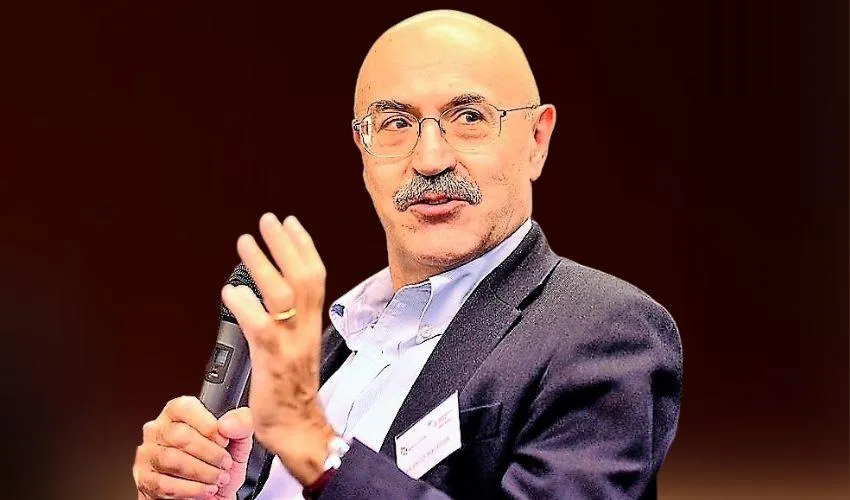
Franco Malerba, a Passion for the Big Questions
There were about a hundred colleagues from around the world who attended the event in honor of Franco Malerba held in Milan last spring to mark his 70th birthday and his investiture as professor emeritus. Malerba thanked them in his own way by reminding them of the rules that guided his work: believe in what you do, ask yourself "big research questions", accept setbacks without giving up, be open-minded to different ideas, and surround yourself with people who share values and goals.
For some years now Franco Malerba has been living for six months a year in the Big Apple, where among other things he is a visiting research professor at NYU but, although he is at home in America, he has never thought of leaving Italy for good. In fact, he is intent on returning soon. This is just one of several aspects of an international academic who for decades has been involved in the economics of innovation, that is, something that by definition points to the future, and now, as professor emeritus, he can look back with legitimate satisfaction to a long and prestigious career.
In America Franco Malerba landed after graduating from Bocconi, as he himself smilingly admits, "as a provincial at Yale." Indeed, in the 1970s there were few daredevils who ventured to pursue a PhD course outside Italy (PhDs themselves at the time an almost unknown concept over here), and quite a few of them plumped for England. "The world was not as connected as it is now, and the United States was really like another planet. The university professors there were at the scientific frontier, very intellectually stimulating and able to pose great research challenges to a PhD student. In short, there was a strong push to act and search, and a great freedom of action," Malerba recalls.
For his PhD in Economics taken at Yale in 1983, Malerba was followed by Richard R. Nelson, an internationally-known figurehead for the evolutionary school of economics. The idea of studying change in the economy, and the technology and innovation that drove it, was pioneering at the time, and was born in this very context, although it was then widely passed on to research, economic policy and business strategy in the years that followed.
"I was very lucky," Malerba says, going back to his early years on the East Coast. "I had actually been accepted by other top-tier American universities as well, and I chose Yale I don't even know why. At Yale I met Richard Nelson, first my mentor and then co-author and friend, and Pamela, who later became my wife. If I had made any other choice my personal and professional life would have been completely different. So I got lucky." But we should remember on the other hand that Louis Pasteur said that luck helps the prepared minds.
From then on, Malerba's research work was incessant and on many fronts. The list of publications in articles and books is endless, but equally essential was for him to talk about his research to students, especially those in his CLEMIT (born in 2002 and later transformed into a master's degree as EMIT) who could not believe their luck to be able to hear him talk about cutting-edge research with the infectious enthusiasm of someone who had conducted it personally, without even the mediation of a textbook.
Research that Franco Malerba moreover continues to this day, devoting himself to studying various aspects of innovation. The dynamics of change, and in particular the ways in which emerging countries such as China and India have narrowed the gap with more developed economies, is one of them. Other topics of his current studies include more recent developments in the evolutionary theory of economic change, the features of innovation systems at industry and country levels, dynamic patterns of industrial evolution, knowledge-intensive entrepreneurship, and the role of knowledge and experience in the entry of start-ups and spinoffs into high- and medium-tech industries.
Enthusiasm was also a feature of the CESPRI research center, which Malerba directed in the 1990s and early 2000s, physically located in an apartment building not far from the university, when the Röntgen Street building did not yet exist. It was perhaps a somewhat inconvenient arrangement as far as space was concerned, but in Malerba's memories those hallways and small rooms all adjoining each other were a constant opportunity for meetings and discussions and an unsuspected catalyst of ideas for him and the group, with which he always worked in perfect harmony. One of Malerba's students, Stefano Breschi, now heads ICRIOS Bocconi, which has taken over the legacy of the old CESPRI.